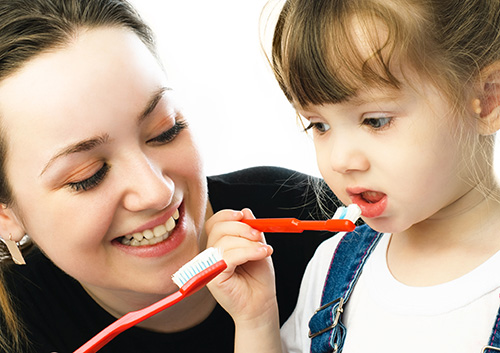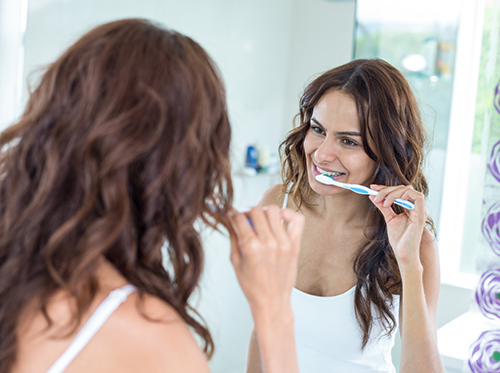Eco-Friendly Toothbrushes
June 7th, 2023

When it comes to dental hygiene, “going green” is not the first phrase that comes to mind. But if you are brushing properly, you are also replacing your toothbrush every three to four months as the bristles become frayed and wear down. Sure, that’s a tiny amount of plastic from each of us going to our landfills, yet it adds up to millions of brushes a year nationally. If you are concerned about reducing your carbon footprint while reducing your risk of cavities, there are several new toothbrushes designed to make brushing more eco-friendly.
Biodegradable Toothbrushes
Some brushes claim to be completely compostable. These models generally have heads fitted with boar bristles and handles manufactured from sustainable woods or bamboo. Boar bristles aren’t for everyone. Some users complain of the taste of the bristles, and boar bristles might be harsher than the soft bristles we recommend to protect both enamel and gums. There is also some concern about bacteria growth on organic bristles.
Earth-friendly Handles and Bristles
If you prefer the consistency and texture of regular synthetic bristles, you can still opt for a brush with a handle of sustainable wood or bamboo. You can also select PBA-free bristles, bristles made primarily of castor oil, or bristles that use natural ingredients in combination with synthetics.
Reduce, Reuse, Recycle
If these exotic brushes aren’t for you, there are more conventional choices that will save energy and cut down on waste.
- Reduce the amount of electricity you use for your electric toothbrush with a model that requires less charging time.
- Reuse your toothbrush by buying one with a handle made of metal, natural materials or plastic and replace the detachable head every three months.
- Recycled plastics can be found in the handles of some toothbrushes, and many brushes come in recyclable packaging. Every bit helps!
If you decide to use one of these green products, remember that your dental health is still the primary goal. Be sure the bristles of your brush are soft enough to protect your gums and enamel and can reach all the places you need to brush. The handle should be easy to grip and the head should be a comfortable fit for your mouth. It’s always best to choose products with a seal of acceptance from your local dental association, or talk to us about greener alternatives during your next visit to our Dearborn office. Luckily, there are several workable options to protect the health of your family's teeth while still being mindful of the health of our planet.




 Website Powered by Sesame 24-7™
Website Powered by Sesame 24-7™